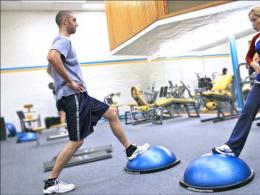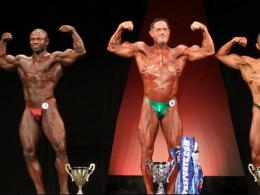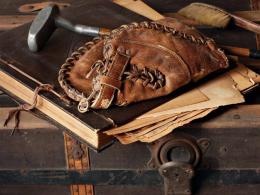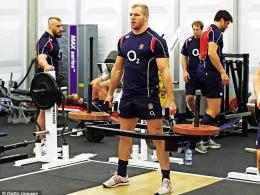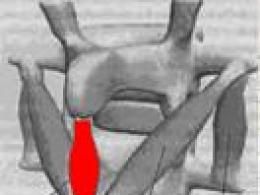What is the best drink during a workout at the gym? Can I drink during a workout? What is the best drink during a workout
Can you drink while eating? This question has probably been asked by many. Let's try to figure it out.
Important processes to be aware of
Our body performs a number of processes during eating and digestion. Therefore, in order to decide whether to drink water during a meal, it is important to understand and consider each of them.
- The mouth produces a lot of saliva when eating, as it contains digestive enzymes that help break down food. They are very important in the formation of a healthy digestive process.
- Our stomachs contain gastric juice that aids in digestion and kills bacteria that can be ingested with food. It is important for this juice to function properly as it aids in the breakdown of food and allows the stomach to contract and "pulverize" the food to a point that allows it to move through the small intestine.
- Nutrients from the foods we eat are transferred through the bloodstream to the liver, from where they are distributed to different parts of the body. The liver requires enough water to function and do its job properly.
To drink or not to drink?
The answers to this question are ambiguous. There are different opinions on this matter. The main focus of the discussion is the question: "Is drinking water during a meal good or bad for the digestive process?". There is no doubt that drinking too much water with meals can interfere with the natural and necessary levels of bile and stomach acid. This will slow down the digestion process and reduce the body's ability to produce enough digestive enzymes to digest food properly. Without proper digestion, toxic waste buildup can occur no matter what you eat. The same applies to other drinks that we could consume during our meal. Alcoholic and sugary sodas "dry out" saliva, making it even more difficult to digest food properly. Cold drinking water or other beverages slow down digestion and can create cramps in some people.

It's no secret that drinking water before and after a meal improves the digestion process. The general consensus is that by drinking water about half an hour before a meal, we protect our body from dehydration, which promotes optimal digestion. For the liver, this is no less important, and, therefore, we help its optimal work. Drinking water thirty minutes after a meal can also help keep the body hydrated and replenish fluids lost during digestion. It is important to note that in case of dehydration, it is better to drink water with meals than not to drink, since in this case it can be very difficult for the body to digest food.
The Other Side of the Medal
It's also important to note that, according to Dr. Michael Picco of the Mayo Clinic, there is absolutely no concern that water will dilute digestive juices or interfere with digestion. In fact, during or after a meal, it aids in digestion. Water and other fluids help break down food, allowing the body to absorb nutrients. Water also softens the stool, and this, in turn, helps prevent problems such as constipation. So far, the clinic staff makes no mention of the temperature or amount of water, but apparently they are confident that drinking with meals is usually good.

Based on the information provided, we can apply a few tips. It seems most important to stay hydrated throughout the day. And if you must drink with meals, don't drink too much, and avoid alcohol and acidic drinks. Drink warm water in moderation. A small glass will most likely not interfere with digestion, and by adding a little lemon, you can help with this process. If possible, try drinking half an hour before and half an hour after meals, and do not drink during meals. Watch how you feel. And if it works positively for you, then stick to that pattern, and if not, adjust accordingly.

Listen to your body. Sometimes what he feels and wants is more important than rigidly following the rules.
Drinking clean water during a workout is healthy and everyone knows this. But there is a way not only to replenish the fluid reserves in the body, but also to nourish it with other vital elements and thereby increase the effectiveness of your workouts!
In the process of physical activity, our body experiences certain losses:
- First of all, fluid is lost and certain trace elements along with it (liquid) - electrolytes (potassium and sodium), as well as other minerals, such as magnesium and calcium.
- The level of sugar in the blood decreases - the body constantly produces energy and this energy is wasted in the process of muscle activity, so the amount of sugars is gradually reduced.
- During training, tissue destruction occurs, that is, protein structures are exposed and destroyed.
With all of this said, it begs the question – can we compensate for all this in the process of training in order to prolong intensity, increase efficiency, and simply feed our body with lost minerals? Let's figure it out.
Water
Let's start with water. Water is a natural fluid and the body needs it very much. Therefore, we drink it in training. However, in addition to water, we need various trace elements that we lose during training, so we move on to the next option.
Sports drinks containing proteins
With water alone, we will not be able to make up for all the losses of our body during training. But what can be dissolved in this water? Is it possible to dissolve protein in this water?
We have tried drinking such drinks during a workout and we can say that this is absolutely not the right thing to do. The presence of protein in the liquid only complicates the body's work, "weights" the drink and thereby reduces the effectiveness of the training itself. But sugar can be dissolved in water. So the next type of drink appears.
Energy

There are a huge number of energy drinks, but their essence is the same - to support the body energetically with the help of components such as ginseng, caffeine, guarana - that is, elements that stimulate the human nervous system. Plus, give this person food in the form of sugars, the concentration of which in energy drinks reaches 14 grams. per 100 ml. But there are some nuances here.
Let's take freshly squeezed orange juice as an example. This is essentially a drink that nature itself created and nature provided this drink with a certain concentration of nutrients, including sugar. So, in orange juice, the concentration of sugars reaches 11-12 grams, that is, in energy it is slightly higher, or the same. But the fact is that it has always been used as food and is perceived by the body as food. In the heat, you will not get drunk with orange juice, but at the same time it nourishes our body, and there are certain situations in life when you can’t think of anything better, but not during a workout.
The same is true with energy drinks. There are situations when energy drinks are needed by the body, but this is not during a workout, it is rather BEFORE some energy-demanding task, that is, you can drink an energy drink just BEFORE training. When it is necessary to provide an energy release and feed the body with a sufficiently high amount of sugars that the body needs for proper functioning. The same applies to other drinks containing sugar.
Any drink that is high in nutrients (sugar in this case) can essentially be compared to food simply dissolved in water. But the body during training does not have the opportunity and no strength to engage in digestion, so the concentration of nutrients, namely during intense exercise, should be minimal.
There are energy drinks that contain all the same stimulants - caffeine, guarana, ginseng, but instead of sugar, stevia or other sweeteners are used here. What can we say about these drinks? The sweetish taste gives the illusion that the drink is sweet, but in reality, glucose does not enter the body, that is, the body does not actually receive the very component that is designed to maintain or raise blood sugar levels. Therefore, such drinks are not suitable for maintaining sugar levels either before or during a workout.
Water with electrolytes

Electrolytes (potassium and sodium) are the components that allow a person's nerves to conduct electrical impulses to the muscles. Our body is able to move precisely due to the presence of electrolytes in the body.
Many fitness clubs sell water with electrolytes, and it is very good that they enter the body. But there is one minus of this drink - there are no sugars, and this is exactly what the body lacks during training. The body asks for glucose. Therefore, we immediately move on to the next drink.
Isotonics

Isotonics are water that contains electrolytes, calcium, magnesium and, most importantly, a certain amount of glucose in order to support the body's need to replenish blood sugar. It is very important that the concentration of these elements is very close to the level of concentration in human blood, so it does not overload the body with unnecessary elements, including sugars, as is the case with energy drinks. Thus, this drink is convenient for disposal during physical activity and is the one we recommend drinking during your workout.
Everyone knows the elementary truth that the human body mainly consists of water. Such a structure of our body forces us to maintain a water balance in it, preventing dehydration or, on the contrary, oversaturation with liquid. It would seem that we should start by finding out how often a person should drink and what he should drink. But there are a lot of suggestions for this. So many that it's easy to get confused.
To the question "how much liquid should I drink per day?" - the answer is simple: drink as much as you want. The body itself signals thirst that it needs to replenish the lost fluid.
It is human nature to sweat. According to scientists, even in a calm state, the human body releases up to 0.5 liters of moisture per day through sweating. Salts are removed from the body through sweat, and in hot weather this function prevents overheating. With moderate physical activity, already 1 liter of fluid is excreted from the body. If a person is actively engaged in physical education or sports, then during training, the release of sweat is disproportionately greater.
To get an idea of how much water you need to drink per day, there are special tables that indicate the amount of fluid needed depending on body weight. But they should not be considered as a strict guide to action, but only as a guide. So, with a weight of 60-70 kg, you should drink 2 liters of clean water. This does not include juices, coffee and tea. And with a weight of 100 kg, the rate of drinking water increases to 3 liters. This is the average daily water requirement for a person. Of course, no one will measure the water they drink. These tables rather serve as an illustration of the fact that our body simply needs water.
What water to drink
Even in the normal state, when a person does not exercise, he must definitely drink water. We will also answer one of the most popular questions: “what kind of water to drink - boiled or raw?” It is better if it is pure raw water.

Drinking water throughout the day
As for how to drink water during the day, there are also some recommendations. So, it is recommended to drink a glass of clean water immediately after waking up. This will not only provide the body with fluid, but will also help to better cleanse the intestines. Just this one step - a glass of water after waking up - can take your health to a whole new level. Simple, like all ingenious! But before going to bed, it is necessary to limit the amount of fluid consumed in order to reduce the load on the kidneys. During the day, be sure to drink when you feel the slightest sign of thirst. And try not to drink tea or coffee, namely clean water.
How and what to drink during training
Can you drink water while exercising? It is possible and necessary. If this is not done, then the effectiveness of training is halved, because the body does not replenish the fluid lost during sweating. Do not forget that muscles, like the whole body, contain a huge amount of fluid. What to drink during a workout? It is best to drink pure drinking water or mineral water. You can add a little natural honey to the liquid. Also, various isotonic drinks are now being produced - drinks for athletes containing vitamins, amino acids and carbohydrates, which increase the effect of sports.
Listen to your body. It will tell you when to drink water during your workout. But you should not drink a lot immediately before training. If the stomach is full, you should wait half an hour and only then proceed with the exercises.
What is the best drink during a workout at the gym? With intensive training in the gym, you should always have a bottle of water with you and drink a little from it every 10-15 minutes. The exception to this rule is yoga. If you are engaged in this type of wellness practice, then you need to drink a glass of water 30 minutes before the start of classes. After completing the complex, you can drink no earlier than half an hour.
Is it possible to drink something other than water during a workout? Doing this is strongly discouraged. The exception is special drinks designed for athletes. They include pure water with the addition of vitamins and mineral salts.

Even during outdoor sports in winter, to drink a warm drink, just fill a thermos with water and honey. Approximate ratio - 3 tbsp. l. honey per 1 liter of water.
After workout
What to drink after a workout will depend on the sport you are involved in. Bodybuilders can recommend a variety of protein shakes that are great to replenish the spent energy. If the sport is not associated with extreme physical exertion, then drink water with honey. It will quench your thirst well and provide the body with useful substances.
It is also necessary to take into account that the body receives fluid not only from the inside, but also from the outside. Therefore, water procedures should never be neglected. Make it a rule to start your workout by taking a shower and finish in the same way, or by swimming in a pool or pond. Showering before and after training clears clogged pores and the body begins to breathe, which has a positive effect on your health.
Are you on a diet? Excellent! Have you decided on food, but what about drinks? What will you drink and when?
If you have decided to get rid of a few extra pounds of weight, then first of all you need to pay attention to the diet. We all pay due attention to food, but we completely forget about the choice of drinks.
What drinks should not be drunk when losing weight
For example, store-bought energy drinks are unhealthy and absolutely useless for weight loss. You can even say that, on the contrary, they increase the risk of gaining extra pounds, since they contain many harmful food additives in their composition.
Carbonated and alcoholic drinks are also useless in weight loss. The sugar contained in carbonated drinks dehydrates the cells of vital organs - the liver, brain. And alcoholic drinks only whet the appetite, which is not at all appropriate for a diet.
Beer is especially harmful. This drink has a high glycemic index. Beer makes our blood sugar jump like a trampoline, and most of the calories are deposited on our sides in the form of body fat.
Mineral water should not be drunk regularly! Excess salts and mineral compounds in large quantities can only harm.
How much liquid is needed per day and when
Everyone has their own fluid intake. For someone, a liter a day is enough, but for someone, two is not enough. It all depends on body weight, diseases and lifestyle.
With a lack of fluid, the risk of developing chronic diseases increases. With excess - swelling and kidney problems. Drinking too much fluid is just as bad for the body as dehydration.
It is not recommended to drink a lot of fluids for people with heart and kidney disease. Also, do not forget that water flushes out of the body not only slags and toxins, but also a lot of useful and necessary nutrients for us.
It is wrong to drink water when thirst is already felt. The body is already dehydrated by this point. Try to drink plenty of fluids so that you don't feel thirsty.
The golden mean of the water regime is one glass of liquid in the morning on an empty stomach and a glass between meals. If you play sports, then you need to drink water before and after training. And of course, a cup of soothing infusion or herbal decoction at night. Sound sleep is the key to health and a good figure.
Delicious and no calories Tips for a sweet tooth: how not to gain weight from ice cream. Can it be eaten for breakfast or dinner.
Choice of drinks: cold or hot
Hot drinks are quickly absorbed into the walls of the stomach and create the illusion of saturation. Cold - stimulate the production of gastric juice, accelerating the process of digestion. Taking a hot drink 20 minutes before a meal will reduce your appetite.
And taking a cold one will help you digest food faster and get satiated. By alternating the consumption of drinks of a contrasting temperature, you can control your appetite and significantly reduce portions of food consumed.
What drinks are good for a diet
Water
The best replacement for all high-calorie drinks. Because:
- Improves digestion. Water helps to solve problems with the acidity of the stomach, and in combination with fiber improves bowel function. Frequent constipation is sometimes the result of dehydration.
- Medicine for headache. Sometimes the cause of headaches is banal dehydration.
- Cleaning. The body uses the liquid to remove toxins, toxins and other uselessness.
- Improving physical activity. Lack of water causes fatigue and interferes with vigorous exercise. Therefore, it is very important to replenish the body's fluid supply before and after training.
- Improving the condition of the skin. Dehydration accelerates the formation of wrinkles and worsens skin color.
- Healthy heart. Enough fluid in the body reduces the likelihood of a heart attack.
- Cheerfulness throughout the day. Lack of water makes us tired and irritable. Even slight dehydration (1-2% of total body weight) can cause dizziness, fatigue and muscle weakness.
For weight loss and body cleansing, not tap or mineral water, but filtered or melted water, is best suited. It is melt water that should be taken as the basis for making homemade drinks or cocktails.
Preparing melt water supplies is very simple:
Fill a plastic bottle with water and place in the freezer to freeze. After half an hour, take out the frozen bottle, put it in hot water for a few minutes and drain the first liquid that has formed.
Then leave the bottle to defrost at room temperature further. All the resulting liquid, obtained as a result of soldering the ice rod, is our melt water. From it you can prepare teas, decoctions, infusions and delicious drinks for weight loss from herbs and citrus fruits.
Tea
Tea is the easiest drink to make at home for weight loss. It can be anything: black, green, white, yellow, milky, hibiscus.
The charms of a tea drink can be listed endlessly. When cold, tea will quench your thirst and activate the production of gastric juice. When hot, it will create the illusion of saturation. It is a diuretic and a natural kidney cleanser. Pleasant in taste, low in calories, good for blood vessels and an active fighter against obesity.
Regardless of the chosen diet, you can add honey, lemon, cinnamon to tea. Lemon is not added only in hibiscus. For more information about how to cook hibiscus, read the link.
Drinks with lemon
Lemon lowers blood sugar levels, improves digestion and dulls the feeling of hunger. When drinking lemon water, citric acid enters our body, which speeds up the process of digesting food. In addition, it disposes to the active breakdown of fats and the removal of toxins and toxins accumulated in the body. In more detail about the properties and methods of making lemon cocktails:
Drinks with ginger
Ginger entered our lives not so long ago, but has already fallen in love with its spicy taste and a lot of useful properties. Possessing a rich composition of vitamins and minerals, it normalizes digestion, helps cleanse the body of unnecessary toxins, fights inflammation and dulls the feeling of hunger.
Drinking a cup of ginger drink half an hour before a meal will reduce the amount of food eaten. And if you add garlic, cinnamon or lemon to ginger, this will increase the effectiveness of the ginger root and extra pounds will fly off faster! Read more in the article:
Drinks with cinnamon
I really like cinnamon drinks. Thanks to its useful components, it relieves bloating, cleanses the intestinal walls from fungi and unnecessary bacteria. Strengthening and cleansing the walls of the intestines, cinnamon improves the functioning of the entire gastrointestinal tract.
The speed of weight loss depends on the well-established work of the intestines. Cinnamon can be added instead of sugar to tea or coffee, make cocktails with kefir or yogurt, add to salads or porridge.

Cocktails with citrus
During the diet, you can treat yourself to a huge selection of citrus slimming drinks. For such homemade cocktails, grapefruit, kiwi, orange, mango, pineapple are well suited. The main feature of such drinks is low calorie content and a huge amount of useful minerals.
During dietary nutrition, we limit ourselves in products and thereby cut off the intake of vitamins and trace elements we need. Fruit smoothies replenish the supply of nutrients and prevent fatigue, irritability, and insomnia from developing.
apple cider vinegar drink
- water - 200 g
- honey - teaspoon
- apple cider vinegar - teaspoon
In the evening, mix all the ingredients and leave to infuse until morning. Drink on an empty stomach in the morning. Very tasty and healthy cocktail for joints and effective in the fight against excess weight.
Decoctions and infusions of flaxseed and oats
Drinks are good for cleansing the liver and improving bowel function. It is both a medicine and a dietary product, and a whole pantry of useful elements for the body.
Herbal decoctions
It is better to select such drinks with a focus on health problems.
- To improve bowel function, herbs with a laxative effect are suitable: senna leaf, chamomile, buckthorn bark.
- To relieve swelling and cleanse the kidneys: parsley seeds, birch leaves, bear ears.
- Cholagogue fees can be prepared from dandelion, barberry, corn stigmas.
- To reduce appetite flax seeds, bubbly fucus, licorice root are well suited.
- To lower blood sugar levels: nettle, Jerusalem artichoke fruits, strawberries.
To neutralize the bitterness of herbs, you can add a little to herbal infusions. And for the sweet tooth, it is better to use natural sugar substitutes such as stevia, honey, brown sugar during the diet.
Fresh fruit juices
Freshly squeezed juices are very useful and quickly absorbed. But due to the high concentration of active ingredients, they must be drunk with caution and in small quantities, be sure to take into account the recommendations of doctors and contraindications for use.
Tomato juice is good for weight loss, but you need to drink it without salt. Effectively reduces the weight of a drink of spinach and apples (you can drink 1-2 times a day between meals). Also, for weight loss, a drink made from carrot juice (120 g) and celery juice (200 g) is good.
By drinking various drinks during the diet, you can regulate your appetite and food intake, as well as feel comfortable and not suffer from food restrictions.
It would seem that there is nothing extraordinary in drinking water. However, there are many myths about how to do it correctly. Advises the dietitian of the capital's "Clinic of Dr. Volkov" Marina Anatolyevna Khachaturova.
Myth #1: You need to drink 2 liters of water a day.
In fact. This is not entirely true. Traditionally, it is believed that the rate of water consumption (the amount necessary to maintain proper metabolism) is 1 liter of water per 30 kg of body weight. If your weight is 60 kg, then it turns out that the recommendation about 2 liters of water is really relevant. But if a person's weight is out of the norm (in one direction or another), these calculations can lead very far. An anorexic girl will be dehydrated, and a fat man weighing more than a centner will die from water intoxication. Therefore, it makes sense to recall the recommendations of the US National Academy of Sciences of 1945: "1 ml of water for every kilocalorie of food consumed." The diet of a modern person is on average 2000-2500 kilocalories - and we are returning to the notorious two liters. But there is a caveat: these two liters include the liquid that is contained in cooked food! In short, it makes no sense to scrupulously calculate how many liters of water you need to drink daily. If you feel thirsty, you need to respond to it.
Myth two. During the diet, it is necessary to reduce not only the amount of food, but also the consumption of water. Otherwise, do not lose weight
In fact. Water is one of the main assistants in the fight against excess weight. Its consumption helps to remove the breakdown products of proteins, fats and carbohydrates from the body, which is one of the most important goals of many diets.
Most women try to cut down on water intake while on a diet because they are afraid that they will develop swelling and keep those extra inches off. This is not entirely true. As a rule, puffiness is associated not so much with drinking water, but with the consumption of salty or spicy foods that retain fluid in the body.
If you reduce the number of spicy and salty foods in your diet, the result will not be long in coming. Of course, provided that the excretory system is working properly. But people with kidney or bladder diseases generally need to be approached very carefully with diets. They can lose weight only with the permission of the doctor and under his control.
Myth three. You can not drink with food: water will dilute the gastric juice, and there will be problems with digestion
In fact. This is nothing more than a theory that has become popular recently. She has no real reason. On the contrary, the water that we drink during meals lengthens the chewing process, softens food, facilitating the task of the digestive system. In addition, drinking water helps to reduce the amount of food eaten.
The main role in the process of digestion of food belongs to hydrochloric acid contained in gastric juice. It is released in response to ingested food, softens it, activates enzymes, promotes the formation of digestive hormones.
Small changes in the concentration of hydrochloric acid due to drinking water are not of fundamental importance. Imagine: you dilute 50 grams of juice with water. Will it decrease in number? No. In addition, water, unlike food, leaves the stomach very quickly - so there is nothing to worry about.
True, it is advisable not to drink ice water during lunch. Even Soviet scientists proved that if you drink porridge with a very cold drink, then the time it stays in the stomach is reduced from 4–5 hours to 20 minutes. This leads to the fact that the feeling of hunger returns very quickly, and the risk of obesity increases. In addition, “accelerated” digestion does not bring benefits to the body.
It should be drunk an hour before meals, during meals, but it is not recommended to drink within an hour after meals. Imagine: you had lunch and drank tea: soup occupies 200 ml of the volume of the stomach, meat - also 200 ml, garnish - 100 and in addition 2 more cups of tea. As a result, the stomach becomes stretched, and the next time you eat more. Setting the complex dinners "first, second, third and compote" in the last ten years of research has proven to be ineffective.
Myth four. In the morning on an empty stomach you need to drink a glass of water, but you can’t drink at night
In fact. One can agree with the first part of the statement. It really helps to drink a glass of water on an empty stomach in the morning. It helps to wake up, immediately activates our nervous system, improves well-being. The best effect from a morning glass of water is if you add a slice of lemon to it. It is advisable to put it in a glass of water in the evening, then, upon waking up, you will get a wonderful vitamin infusion.
But the ban on drinking water at night is very conditional. It is believed that swelling may appear on the face from this in the morning. However, again, if the kidneys are working well, this is unlikely.
In general, it is somewhat strange to talk about when you can drink water and when not. Indeed, recently doctors have increasingly come to the conclusion that it is desirable to drink in small portions and evenly throughout the day. Drink water with lemon on an empty stomach, then drink a glass of herbal infusion or decoction before breakfast. Be sure to drink before dinner. Drink a couple of glasses of herbal tea, juice, or water in the morning and afternoon.
In the hot season, when fluid loss and thirst increase, you have to drink more. In these cases, it is better to drink a glass of water not at once, but gradually, taking 1-2 sips at short intervals. If you are doing something, put a glass of water near you and drink it periodically in small sips. This drinking regimen is very beneficial for the kidneys and ureters.
Myth five. Drinking while exercising is harmful. This increases the load on the body and prevents weight loss.
In fact. This is not true. Everyone knows that if you sweat a lot in training, and then do not drink water for some time, body weight will decrease slightly. But it is worth drinking water, as the weight returns to its original state.
The fact is that cells, including fat cells, are partially composed of water. During training, they lose it, so it seems to us that we have lost weight. But the number of fat cells does not decrease, and after a while they are restored in volume. Therefore, there is no need to test your body with dehydration during sports - you will lose weight from this only illusory. To really get rid of fat, you should change the nature of the diet, pick up a different workout. And you can drink water anyway. It does not increase the load on the body.
On the contrary, during training, the body temperature rises, sweating increases, as a result of which the volume of circulating blood decreases, and its viscosity increases. And here it is not far from low blood pressure or thromboembolism. Drinking water helps prevent all of this.
If your workout is intense, doctors recommend sticking to the following drinking regimen. Drink a glass of water 1.5-2 hours before class. Add another half cup 10-15 minutes before your workout. During classes, you should drink 100-150 ml every 15 minutes. At the same time, you don’t need to force yourself - if you want to skip one of the water intakes, it’s okay. And after training, drink 150-200 ml every 15 minutes until the lost fluid is completely replaced.
magazine "Women's Health"

